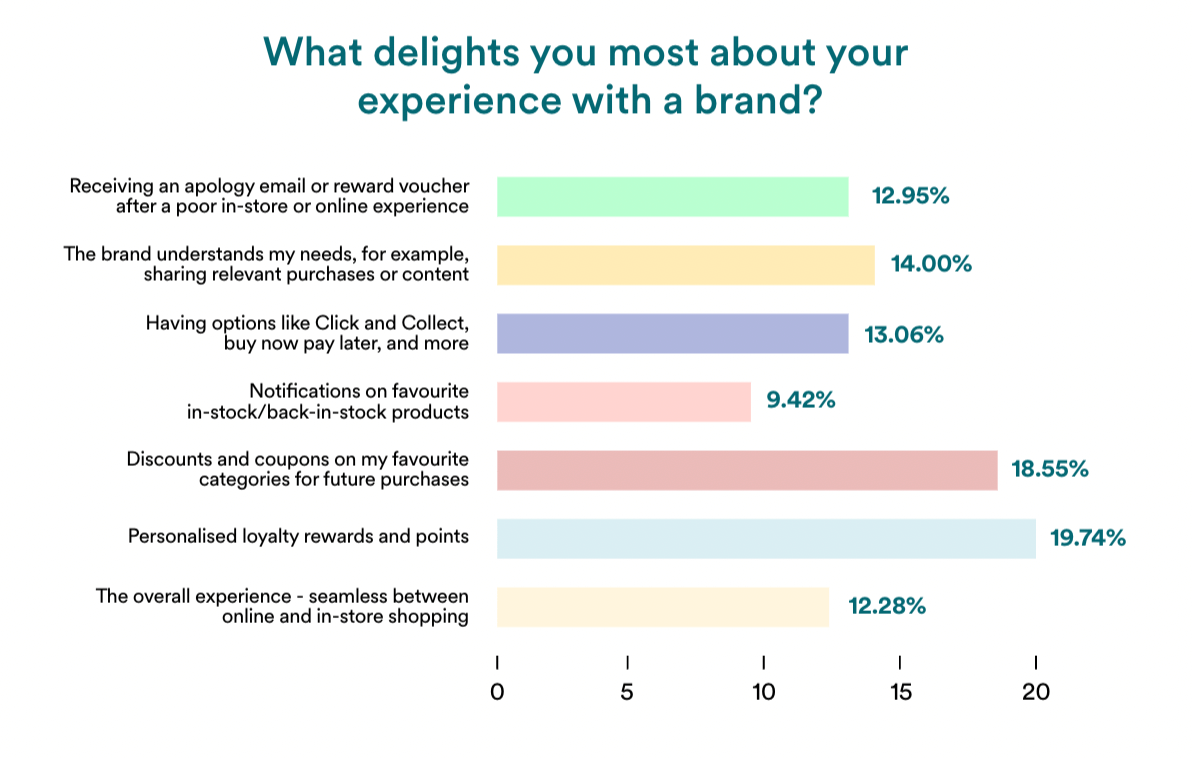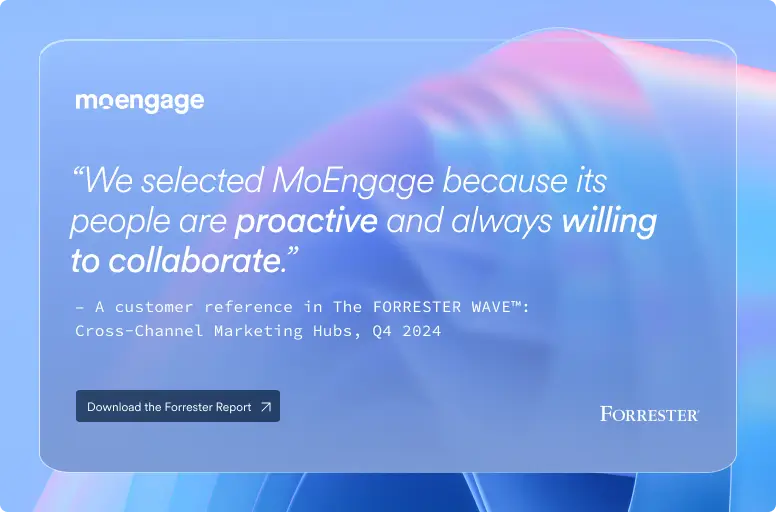🔥 [Panel] Personalization, AI, Trust—What Top BFSI Marketers Are Doing Differently.
Register Now
Get a quick lookback into 2021 personalisation trends to compare
Know what your consumer loves and hates
Understand consumer personalisation expectations and preferences
Uncover how you can strike the right balance between personalisation and privacy
Ready-to adopt personalisation strategies that don’t break at scale


52% of Europeans find delight in personalised discounts, rewards. They not only expect a deeper level of personalisation in their shopping experience but also other aspects of their journey.

What is personalisation, and why does it matter today?
Personalisation is when a brand can tailor the experience for each customer based on their interest, past behaviour and other factors unique to them. A decade ago, your consumer seeing their name on the email was a miracle. Consumers today want to purchase from brands they feel understand them. When you ask why personalisation matters, the simple answer is that your consumer wants it. The Personalisation Pulse Check for Europe 2023, shows that 27.20% of European consumers want brands to personalise based on their past purchase behaviour. 26.20% of consumers expect brands to personalise based on known interest.
Meeting these consumer expectations entails brands using intelligent engagement strategies to engage consumers consistently and keep them coming back for more.
How do you begin personalising your consumer experience?
Get personal with insights. Insights are crucial to building a personalised engagement strategy for every consumer, from the time they come to your website to the time they checkout. Begin by building a unified view of your customer, their intent, past interactionsns, where they have interacted with you most etc.These insights form the cornerstone of knowing your consumers deeply to meet their needs and even begin predicting their behaviour.
Are consumers willing to share personal information to ensure a personalised experience?
Consumers value a personalised experience; we’ve observed that the consumer personalisation expectation is clear. They want brands to meet their needs, contextualise recommendations and meet them where they are. A majority of consumers (29.60%) state they want to receive communication from brands atleast twice a week. Further more, 46.42% of consumers state that they are willing to share their personal information for a more personalised purchasing experience, while only 0.87% say they aren’t comfortable with information sharing.



MoEngage is an insights-led platform trusted by 1,350+ global brands like McAfee, Flipkart, Domino’s, Nestle, Deutsche Telekom, and more. MoEngage’s powerful analytics, personalization, and AI capabilities give a 360-degree view of your customers and help you create journeys across digital channels.
© Copyright 2025 MoEngage. All Rights Reserved.

Please wait while you are redirected to the right page...
